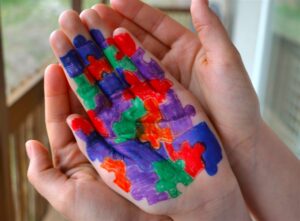What Does Autism Awareness Month Mean For You?
April is the month devoted to several important causes that are near and dear to my heart. As a school psychologist and former case worker for special needs children, I have found autism to be a challenge for many children and families.
Chances are, you have known individuals who have challenges on the autism spectrum. The U.S. Centers for Disease Control and Prevention (2020) report that an average of 1 in 110 children within our American borders are diagnosed on the autism spectrum. That may sound like a high statistic and yet, states vary. Some of those numbers are even higher, depending on the source.
While connecting closely with early childhood, teenagers, and college level individuals, I have learned some important aspects about living with autism that I suspect many families would like the public to know.
First and foremost, each person with autism is unique. Their specific characteristics within the areas of cognition, communication, social skills, motor abilities, and sensory needs vary tremendously from one person to another. More importantly, those individuals have many gifts, talents, and qualities that have nothing to do with autism. Their families, educators, treatment providers, and friends know that there is much more to them than the diagnosis suggests.

Some of the symptoms children and adults live with on the spectrum make life a challenge in ways you might not expect. For example, making and/or maintaining appropriate eye contact can be uncomfortable or even painful for them. Also, the world is full of social contact and navigating those interactions can be confusing or even impossible. Another vital issue they face is sensory differences. Those of us with a typical neurological system can’t relate to the constant barrage of sights, sounds, or stimuli through touch and taste they must face with each day.
Just think; eating, noisy environments, changes that most of us don’t batt and eye about, and people constantly giving directions and forcing interactions that hold little or no value to them go on nonstop. People with autism are constantly attempting to regulate their emotions and reactions to this world.
A person’s behavior is often a reflection of an inner struggle as well as an outer one even if they experience similar situations from one day to another. If it sounds hard to figure out how to meet their needs, you are on to something.
I know families who can’t leave their child to attend public events or even eat a quiet dinner with their child while others incorporate their child in many environments with little difficulty. It is simply a spectrum that requires round-the-clock care and sacrifice all the way to basic strategies that assist in daily life.
Some children grow up to attend college or training that fits their interests and go on to lead fulfilling lives. Ohers, like one of my close family members, need some level of assistance and care for the rest of their lives. I am very proud of one of my nieces, who has worked hard to find her place in society and contributes to her potential. That is accomplished through the devotion of her parents, the educators, and caregivers who have loved her for who she is, not who she isn’t.

If you come across someone with autism, I encourage you to find out how you can get to know the person inside. Respect, acknowledgement, and concern for their well-being is what I believe families would like us all to show each one of these individuals who have abilities that are simply harder to see from far away.






Leave a Reply